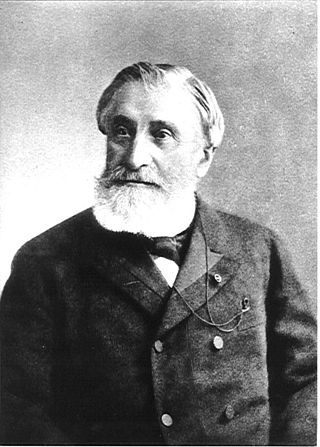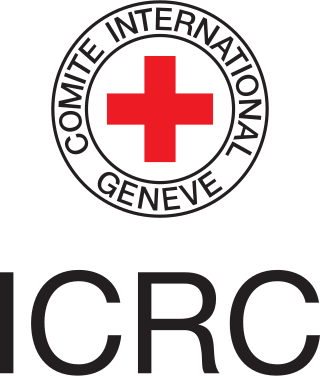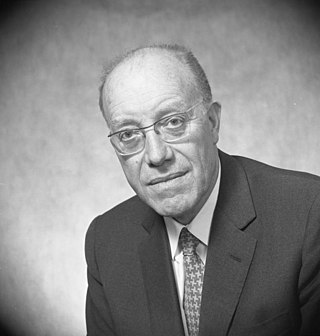Related Research Articles

The organized International Red Cross and Red Crescent Movement is a humanitarian movement with approximately 16 million volunteers, members, and staff worldwide. It was founded to protect human life and health, to ensure respect for all human beings, and to prevent and alleviate human suffering.

Henry Dunant, also known as Henri Dunant, was a Swiss Christian, humanitarian, businessman, social activist, and co-founder of the Red Cross. His humanitarian efforts won him the first Nobel Peace Prize in 1901.

Walther Wilhelm Georg Bothe was a German nuclear physicist known for the development of coincidence methods to study particle physics.

Gustave Moynier was a Swiss jurist who was active in many charitable organizations in Geneva.

The International Committee of the Red Cross (ICRC) is a humanitarian organization based in Geneva, Switzerland, and is a three-time Nobel Prize laureate. The organization has played an instrumental role in the development of rules of war and promoting humanitarian norms.

The Graduate Institute of International and Development Studies, also known as the Geneva Graduate Institute, is a public-private graduate-level university located in Geneva, Switzerland.
Rüdiger Wolfrum is German jurist and the current professor of international law at the Heidelberg University Faculty of Law and director emeritus of the Heidelberg Max Planck Institute for Comparative Public Law and International Law. Wolfrum was a judge at the International Tribunal for the Law of the Sea from 1996 to 2017, serving as president of the court from 2005 to 2008.
Peter Herbert Jensen was a German experimental nuclear physicist. During World War II, he worked on the German nuclear energy project, known as the Uranverein. After the war, he was a department director in the high-voltage section of the Max Planck Institute for Chemistry, in Mainz, and a supernumerary professor at the University of Mainz.
Wolfgang Gentner was a German experimental nuclear physicist.

Heinz Maier-Leibnitz was a German physicist. He made contributions to nuclear spectroscopy, coincidence measurement techniques, radioactive tracers for biochemistry and medicine, and neutron optics. He was an influential educator and an advisor to the Federal Republic of Germany on nuclear programs.
Yoram Dinstein was an Israeli scholar and professor emeritus at Tel Aviv University. He was a specialist on international law and an authority on the laws of war. He served as President of Tel Aviv University from 1991 to 1998 and won the 2023 Israel prize for law research.

Jean Simon Pictet was a Swiss citizen, jurist, legal practitioner working in international humanitarian law. First as a secretary-jurist, and then as a senior executive and Vice-President of the International Committee of the Red Cross (ICRC), Pictet was instrumental in drafting the 1949 Geneva Conventions for the protection of victims of war, their Commentaries, and negotiating the 1977 Additional Protocols. He also proposed the Red Cross Movement’s seven Fundamental Principles, which were adopted at Vienna in 1965: Humanity, Impartiality, Neutrality, Independence, Voluntary Service, Unity and Universality. In 1989, an international humanitarian law competition for students was founded and named after him.

Thilo Marauhn is a German expert on international law. He currently holds the professorship for Public Law and International Law at the Justus Liebig University Giessen and heads the research group “International Law” at the Leibniz Institute Hessische Stiftung Friedens- und Konfliktforschung / Peace Research Institute Frankfurt (PRIF). Apart from this, he is a researcher at the Asser Institute and recently appointed as the Special Chair Arms Control Law at the University of Amsterdam.
Amalie Luise Elisabeth Haub was a German heiress, philanthropist and environmentalist.
Anne Peters is a German-Swiss jurist with a focus on public international law. She is director at the Max Planck Institute for Comparative Public Law and International Law, honorary professor at the University of Basel, University of Heidelberg and Free University of Berlin, and at William W. Cook Global Law Professor at Michigan Law School.
Stephen Conolley McCaffrey is an American legal academic.
Jiří Toman was a Czech-born Swiss jurist and professor. He was an expert in the field of international law. From 1992 to 1998, he directed the Henry-Dunant Institute in Geneva, which he had joined in 1969. From 1998 to 2018, Toman was a professor at the Santa Clara University School of Law.

The archives of the International Committee of the Red Cross (ICRC) are based in Geneva and were founded in 1863 at the time of the ICRC's inception. It has the dual function to manage both current records and historical archives. The general historical archives are openly accessible to the general public up to 1975.
Laurence Boisson de Chazournes is a French lawyer and professor at the University of Geneva and the Collège de France.

Wolfgang Huber is a German specialist in internal medicine, nephrology, and environmental medicine.
References
- ↑ "Biography of MR. MICHAEL BOTHE" (PDF). www.un.org/law/avl. United Nations Audiovisual Library of International Law. Retrieved Aug 3, 2024.
- ↑ https://www.iucn.org/sites/dev/files/import/downloads/cv_michael_bothe.pdf [ permanent dead link ]
- ↑ "Michael Bothe". International Review of the Red Cross. April 2018.
- ↑ "Academic awards: Sant'Anna School Researcher of Dirpolis (Law, Politics, Development) wins the Ciardi Prize 2018 in recognition of her study in international humanitarian law".
- ↑ "The Elisabeth Haub Award for Environmental Law and Diplomacy - CALL FOR NOMINATIONS" (PDF). Pace University Elisabeth Haub School of Law. Retrieved Aug 3, 2024.
- ↑ "2017 Henry Dunant Medal Winners | The Standing Commission".